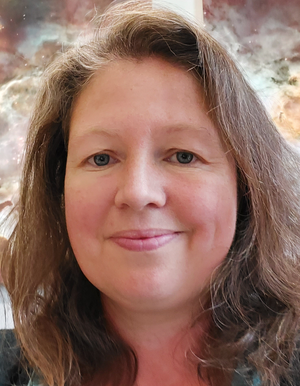The Dutch Black Hole Consortium Education Programme
TalkGravitational waves, black hole shadows and exoplanets: Can we make a place for cutting-edge results in schools?
4th Shaw-IAU Workshop
Tuesday Nov. 15, 2022
UTC: 8 p.m. - 8:20 p.m. America/New_York: 3 p.m.- 3:20 p.m.
Thursday Nov. 17, 2022
UTC: 8 a.m. - 8:20 a.m. America/New_York: 3 a.m.- 3:20 a.m.
The Dutch Black Hole Consortium brings together cutting-edge research from subjects as diverse as astronomy, engineering, and geology to further our understanding of black holes and gravitational waves. At its heart is an ambitious educational project to bring the results into both classrooms and informal learning settings. For primary level, lessons are being created using innovative smart education techniques and research will focus on how to support learners to think scientifically. At secondary level, the focus lies with teacher education; trainee physics teachers will be able to experience real scientific research to inspire and improve their classroom practises. The consortium is also developing a large citizen science project and exhibits for two science museums/centres.
About Joanna Holt
I’m originally from the UK but have been living and working in The Netherlands since 2008. After obtaining a PhD in Astrophysics and working for several years as a postdoc, I moved into STEM Education and Outreach. I spent several years working in the European Space Agency’s Education Team on a variety of projects at primary and secondary level including developing classroom resources, teacher training events and educational competitions. In 2016 I moved to the Hogeschool van Amsterdam (Amsterdam University of Applied Sciences, AUAS) to teach science and science didactics to trainee primary school teachers. In June 2020, I partially moved to the Netherlands Research School for Astronomy (NOVA) to take up the position of Education Manager. Our education projects operate on a national level and include a group of inflatable mobile planetariums which visit around 300 of schools each year. I also continue to work at the AUAS on a number of science didactics research projects.
Watch a recording of this talk (external link)





